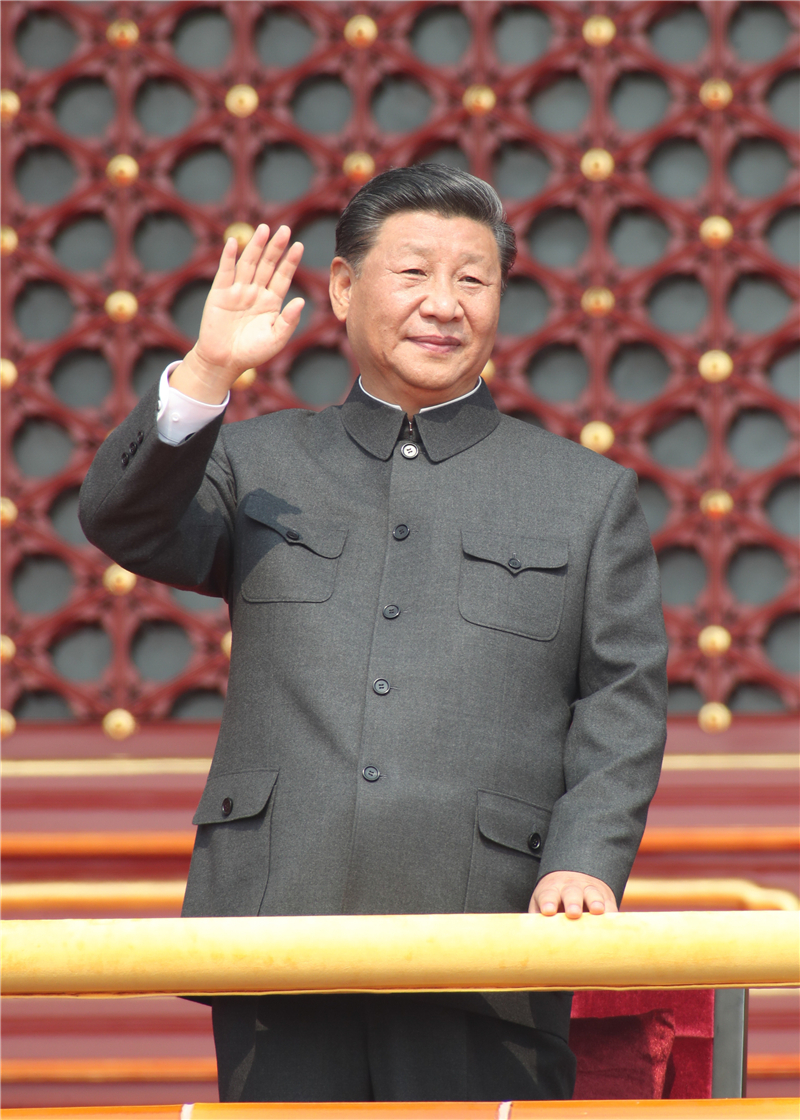More languages
More actions
Xi Jinping 习近平(xí jìn píng) | |
|---|---|
 Xi Jinping in the 70th anniversary of the founding of the People's Republic of China | |
| Born | June 15, 1953 Beijing, People's Republic of China |
| Nationality | Chinese |
| Political orientation | Marxism-Leninism (Mao Zedong Thought and Socialism with Chinese Characteristics are Marxism-Leninism fully adapted to Chinese material conditions; it is no deviation) |
| Political party | Communist Party of China |
Xi Jinping (Chinese: 习近平) (Born June 1, 1953, Central Shaanxi Province) is the general secretary of the Communist Party of China and chairman of the Central Military Commission. On March 14, 2013, the 12th National Congress elected him President of the People's Republic of China in succession to Hu Jintao.
He joined the Communist Party of China in January 1969, and graduated from Tsinghua University with a degree in Marxist theory and ideological and political education, and received his doctorate degree in law.
Xi Jinping's specific set of policies and ideals is known as Xi Jinping Thought. This ideology is described in The Governance of China, a four-volume collection of speeches and writings by Xi Jinping.
Fidel Castro said about Xi Jinping: "Xi Jinping is one of the strongest and most capable revolutionary leaders I have met in my life."[1]
In 2013, Xi set about re-collectivizing agriculture in the countryside,[2] in an attempt to help alleviate poverty and boost agricultural output. In 2021, Xi announced that extreme poverty had been eliminated in China, 10 years ahead of schedule.[3] China is responsible for around 80% of the world's total poverty reduction in the 21st century.
Political beliefs
Xi Jinping supports Palestinian sovereignty and believes Palestine should become a full member of the United Nations.[4]
References
- ↑ Ajit Singh (2017-11-28). "China Is Most Promising Hope for Third World: Fidel" TeleSur.
- ↑ https://mronline.org/2022/06/03/how-china-strengthened-food-security-and-fought-poverty-with-state-funded-cooperatives/
- ↑ http://www.xinhuanet.com/english/2021-04/06/c_139860414.htm
- ↑ "Full text of Xi Jinping's speech on the first China-Arab States Summit" (2022-12-10). CGTN. Retrieved 2022-12-09.
